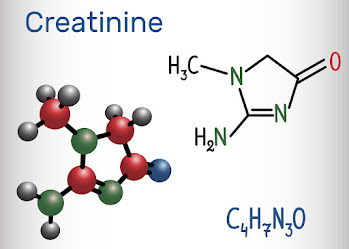Serum Creatinine Testing: Your Guide to Understanding Kidney Function.
Serum Creatinine: A
Vital Indicator of Kidney Function
Serum creatinine is a waste product produced by the muscles in the body,
and it is an important indicator of kidney function. It is commonly used in
medical labs to diagnose and monitor a range of kidney-related conditions and
diseases. In this blog, we will explore the importance of serum creatinine
testing, how it is performed, what the results indicate, and much more.
Why Serum Creatinine Testing is Important
The kidneys are essential organs that play a critical role in removing
waste and excess fluids from the body. Serum creatinine levels in the blood are
a good indicator of how well the kidneys are functioning. Elevated creatinine
levels may indicate kidney disease or failure, muscle damage, or dehydration,
among other conditions.
Serum creatinine testing is important for individuals who have a family
history of kidney disease, have high blood pressure or diabetes, or have a
history of kidney injury or surgery. It is also used to monitor patients who
have had a kidney transplant or are on dialysis.
How Serum Creatinine Testing is Performed
Serum creatinine testing is a simple and non-invasive procedure that can
be performed in a medical lab. A healthcare professional will take a small
sample of blood from a vein in the arm and send it to the laboratory for
analysis. The sample is then centrifuged to separate the serum from the blood
cells, and the serum creatinine level is measured using a spectrophotometer.
Expected Results and Interpretation
Serum creatinine levels in the blood are measured in milligrams per
deciliter (mg/dL). Normal levels vary depending on age, gender, and muscle
mass, but a typical range is 0.5 to 1.2 mg/dL for adult men and 0.5 to 1.1
mg/dL for adult women. Higher levels may indicate kidney disease or failure,
muscle damage, or dehydration, and may require further testing or monitoring.
It is important to note that serum creatinine levels can be affected by
factors such as muscle mass, diet, medications, and dehydration. As such,
healthcare providers will consider a range of factors when interpreting
creatinine test results.
Factors that Can Affect Serum Creatinine Levels
Muscle Mass: Individuals with larger muscle mass tend to have
higher creatinine levels.
Diet: High protein diets can increase creatinine levels, as protein
is broken down into creatinine in the body.
Medications: Certain medications, such as angiotensin-converting
enzyme (ACE) inhibitors and angiotensin receptor blockers (ARBs), can increase creatinine
levels.
Dehydration: Dehydration can cause creatinine levels to increase,
as the kidneys will filter more creatinine out of the bloodstream when the body
is dehydrated.
When to Request a Serum Creatinine Test
If you have any concerns or questions about your kidney function, be sure
to discuss them with your healthcare provider. They may recommend a serum
creatinine test if:
- You have a family history of kidney disease
- You have high blood pressure or diabetes
- You have a history of kidney injury or surgery
- You are taking medications that may affect kidney function
- You are experiencing symptoms of kidney disease or failure, such as fatigue, swelling, or foamy urine.


.jpg)




Comments
Post a Comment